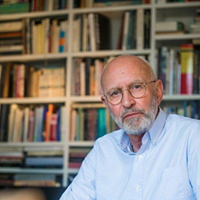
Ambassador Jan De Bock was the Executive President of CERIS from 2016 to 2022. Jan De Bock entered the Belgian diplomatic service in 1975 and has served successively in Vienna (IAEA & UNIDO), Geneva (specialized U.N. agencies World Health Organization and International Labour Organization), in Moscow at the end of the Soviet Union, New York and in Bonn/Berlin, at the moment of German reunification. He was Belgium’s Deputy Permanent Representative to the EU and later served five years as Ambassador & Permanent Representative to the European Union (2002-2007). From 1993 to 2002 he was Chief of Cabinet to three Belgian Foreign Ministers and General Secretary of the Belgian Foreign Ministry. In 2007 he was appointed Belgian Ambassador to the Italian Republic and Permanent Representative to the UN Food and Agricultural Organization (FAO) and in 2011 Ambassador to the Kingdom of Spain and the Republic of Andorra. After his return to Belgium in 2014, Jan De Bock was appointed International Secretary of the Flemish Socialist Party, in charge of European and international affairs. Jan De Bock regularly contributes to debates and publications on European and international questions. He was co-founder of the Brussels Egmont Institute and initiated the rapprochement of CERIS and the Brussels Regional Government and its further involvement with the Free University of Brussels (ULB).
Over its 35 year history, CERIS and its successive presidents have evolved in parallel with the general transformation of the political and diplomatic events in the world. Whereas Ambassador Cahen’s presidency was very much influenced by the Cold War – as a matter of course in its East-West dimension, but also as far as Central Africa was concerned – the Presidents who served after him, were very much part of a multi-dimensional post-Cold War world. Ambassador De Bock was an actor and theoretician of that society. He witnessed from close by the implosion and falling apart of the Soviet Union (1985-1991) and in 1997 an event that has had a far reaching consequences for the world: the chess victory in a 6 games match by “Deep Blue”, the Artificial Intelligence chess program over Gary Kasparov, the world champion. CERIS’s programs are in the first place geared towards strategic concepts and a geo-economic and a geopolitical explanations of our contemporary world, but also towards deep long-term tendencies and the influence of new technological evolutions on International Relations, the economy and development.